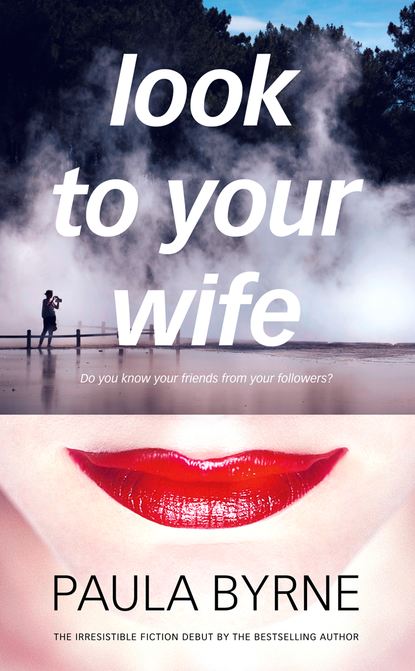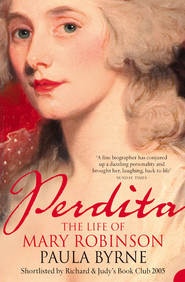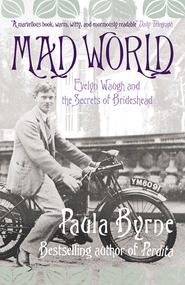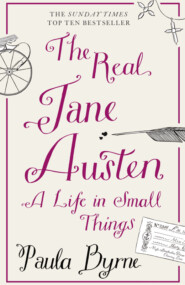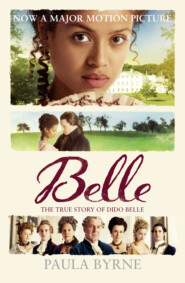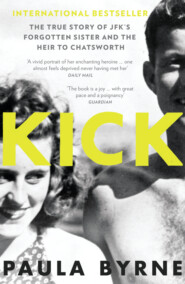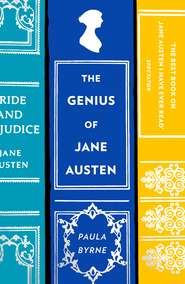По всем вопросам обращайтесь на: info@litportal.ru
(©) 2003-2024.
✖
Look to Your Wife
Автор
Год написания книги
2018
Настройки чтения
Размер шрифта
Высота строк
Поля
‘Please be careful, Edward. I think this could blow up.’
‘No, no,’ he protested, ‘you’ve got this wrong. Maia Riddell is an exemplary teacher. She would never, ever hit on a student. But, Lisa, I thank you for your concern.’
‘Well, don’t say I didn’t warn you,’ she laughed.
* * *
There is always a green-light moment in every relationship, especially in a clandestine one. The moment when a couple can make a decision, stop what they’re doing, or just go ahead anyway. Lisa was no strict moralist when it came to relationships; she’d always had a loose notion of fidelity, but she wouldn’t go any further if there were children involved.
Edward and Lisa met for a drink in the local pub after work one day. He asked if she had children. ‘No,’ she said, ‘had my bellyful looking after my siblings thank you, to ever romanticize the idea of raising a family. I’d rather concentrate on my career. How about you?’
‘No. We’ve been married for seven years, and we have never wanted children. In fact, we left out the prayer for children in our marriage ceremony. We’re happy with our cat, Tabitha. I think my mother is disappointed. I don’t see Moira as the maternal type. And she’s quite paranoid about needles and childbirth.’
‘Well, who can blame her? My mother had six, and it was no picnic.’
‘Six? Are you serious? Such a large family. Where are you in the pecking order?’
‘Third daughter. Says a lot about my character. My parents were desperate for a boy. He came after me. Spoilt rotten, as you can imagine. But don’t get me wrong, I love being part of a big family. You learn from a very early age that life is basically unfair. You also learn not to take yourself too seriously. How about you?’
‘I’m an only child.’
‘Ah.’
‘And by the way, Lisa, you were right about the lesbian lovers. The school is facing a law suit.’
He paused, and then said, ‘By the way, I’ve been sent a couple of free tickets for a play over in Manchester. You know my wife lives down south. Would you fancy coming? Sounds a bit experimental, but that might be your kind of thing.’
‘Why not?’ she replied.
It was only when they were halfway to Manchester, Edward driving his black BMW very distractedly, that he mentioned that the show in question was a production of Richard III. She knew that he loved Shakespeare, and so did she, so this was no surprise. ‘Apparently it’s got wolf and boar masks, and dancing, movement, physical theatre stuff – probably more your vibe than mine,’ he said, then he paused. ‘And it’s in Romanian.’
Silence. ‘I’m not sure whether there are surtitles.’
* * *
She loved the show. And she loved that he loved it. On the surface, he was so English, so Oxford, potentially a right stuffed shirt, but underneath, he was mischievous, a bit radical, full of surprises. Ever so slightly dangerous. Afterwards he offered her a drink in his flat.
She had parked her precious Mini at the school, and she didn’t want to leave it there overnight – the radio would be sure to be nicked. ‘Can we swing by the school, and I’ll follow you in my car?’
Later, and for many years later, he would tell her how he had looked into his rear mirror only to glimpse her terrified eyes.
She was terrified, because she knew that she was going to kiss him. He put on Tristan und Isolde (corny, but effective, she thought). He lit a fire, and they talked. As she was leaving, he took her in his arms. She felt less guilty for that long, passionate kiss than she had for tenderly kissing Jordan.
CHAPTER 4
The Truth Will Set You Free (#ulink_0501649e-72a8-5a12-9c63-3b12f24d53b5)
Lisa knew that she would bear Edward’s children. And she knew that he knew it too. Parting with Pete was painful but necessary. Once she had slept with Edward, she knew that she could never sleep with her husband again. Strangely, she felt that to sleep with her husband would be a betrayal of Edward.
Moira was furious, chilly, vengeful. She threatened to ruin Ed’s reputation in and around his old school in the south. It was she who had raised him from the gutter, supported him whilst he rose in his career, put her own career on hold. She stormed over to Liverpool to have it out with him, taking her beloved cat and some empty suitcases. Edward was on the phone when she arrived. He hastily hung up.
‘Hello Tabitha, and where’s your mistress?’
‘She’s here, and don’t let me prevent you from chatting to yours.’
Ouch. She could be cutting, Moira, but she was also terribly witty. When she realized that he had made up his mind to leave, she told him that she would destroy him and take every penny. She told him that he and Lisa wouldn’t last five minutes, that he was making a big mistake. Then she proposed an open marriage. Half-ironically, half-seriously, Edward put the proposition to Lisa: ‘Gosh, that’s too sophisticated for me,’ she replied. ‘I’m a simple, northern, working-class girl, we’re all or nothing up here, I’m afraid.’
Moira begged him to go into marriage therapy. Then she tugged at his heartstrings, saying that she now wanted children.
He would give her the therapy. But he was cruel when he told her that even if he only lasted three months with Lisa, he would still want those months. The marriage was over. He loved Liverpool. He wanted to stay. He didn’t want to return to that tiny house in boring Guildford.
Lisa was angry when she heard that he was going into marriage therapy. She felt it was a mistake, and cruel to Moira, when Edward had no intention of saving the marriage. But he was adamant. He owed it to Moira and the seven happy years they had spent together.
Then one night Edward phoned from Guildford. ‘Darling, you will never believe what I have to tell you. Moira’s admitted in our therapy session that she’s been having an affair with one of my colleagues from the history department at my old school. I feel fantastic. Liberated. I no longer have to feel so guilty.’
‘Why did she tell you, Edward? Did she want you to know that she was desirable and sexy in the eyes of other men? Was it a last-ditch gamble to save the marriage, to show another, dangerous, side that you didn’t know existed? What’s her agenda?’
‘She said something rather noble. She said, “The truth will set you free”.’
* * *
Lisa married Edward. He’d first proposed in the Puck Building in Manhattan on New Year’s Eve at midnight, where he’d flown her for an old Oxford friend’s wedding to some hedge fund manager. They were dancing together to the sounds of an all-girls jazz band. She turned down his first proposal. ‘Edward, we’re both still married to other people. It’s too soon to think about another engagement.’
He tried again, this time in Paris, after they had both got the decree absolute. He gave her a box containing a beautiful gold lamé Vivienne Westwood dress, wrapped more exquisitely than any present she had ever received. Then he told her that he was taking her to a train station café for supper. When she got there, she saw that it was the fabulous art deco restaurant at the Gare de Lyon, Le Train Bleu.
Edward told her that this was the restaurant where Coco Chanel would have dined, and Scott and Zelda Fitzgerald, and then they would have caught the famous Blue Train to the French Riviera, and that was the kind of life he wanted with her. When he took out a small blue box, she grinned. It was a beautiful ring, in a style called Moi et Toi, which he had bought from Cartier. Two stones, a diamond and a sapphire, twisted around one another.
‘So is this a Yes, this time?’
‘OK then, Edward. Let’s do it. But it must be a small and intimate wedding. No family. No fuss.’
So they married. Edward in a cream linen suit, Lisa wearing a simple, elegant second-hand Chanel dress, made of cream tweed and bought at a bargain price from a student friend who had started an online store buying and selling vintage couture. It was cut on the bias, and fell to just below her knees, nipped in at the waist. It showed her figure to perfection. Her measurements were exactly the same as Marilyn Monroe’s (as she often reminded Edward, and anyone else who would listen). 36, 24, 34. The dress hugged her perfect breasts, and accentuated her tiny waist. She carried a handmade posy of white roses. She looked sensational. They told nobody that they were getting married, other than Chuck and Milly, who were the witnesses.
Edward and Lisa had their honeymoon in Venice. They stayed in a hotel on the Grand Canal opposite the Ca’ d’Oro. Lisa loved the ‘Golden House’, which she could see from their bedroom window, so-called because of the gilt that adorned its façade. They woke in the morning to the cries of the gondolieri, and the splash of boats carrying their wares in the early morning sunshine. At that time of day, the sun was not yet shining on the Ca’ d’Oro, so it was more putty-coloured than golden, but that would change with the afternoon sun, and then it would glow and shimmer, casting its gorgeous reflection on the glassy green waters below. Narcissus in love with its own dazzling, dizzying beauty.
Venice was the city that ignited Lisa’s passion for food. After Edward, it was her most enduring love affair. It was early September, just before the start of term, and the restaurants were not so crowded. She made friends with the cameriere at Al Mascaron in Santa Maria Formosa. He recommended the stuffed pumpkin, then risotto ai funghi with rocket and warm bread. They drank chilled Prosecco and then Refosco from the demijohns that lined the wooden bar. The cameriere brought figs and pears in a bowl of iced water. When she asked him to point out the locals, he told her that Venetians mainly eat at home, but buy bread at the panificio and pudding at the pasticceria, where, he said, you can also buy biscotti al vino, tiny plum tarts, and almond cornetti.
The next morning, whilst Edward slept late, Lisa wandered to the Rialto, home to the famous food market. She failed to find Shylock, but she saw wreaths of onions, bunches of aromatic herbs, late-ripening San Marzano tomatoes and bulbous glossy purple melanzane. Then, next to the fresh market was the pescheria, fish pulled straight from the Adriatic, squid, soft-shelled crabs, writhing eels, swordfish and tuna. The macellerie, where rabbits hung from hooks, and steaks and chops lined the tables.
Lisa did not speak Italian, unlike Edward who was fluent and spoke the language like an ambassador, but she understood when the market farmers proffered shards of melon, and warm figs, ‘Tasta, tasta bea mora.’ She stopped off at a bar and ordered a cappuccino. Even in the morning, the local people swigged glasses of Prosecco and gulped down espresso in one go; the Italian way.
The next morning she headed to the market on the Lido, not to buy, but to look at the rolls of damask, cappuccino-coloured, bolts of creamy silk, embossed linen napkins.
When she got back, Edward was showered and ready to explore. He wanted to show Lisa the Carpaccios at the Scuola di San Giorgio degli Schiavoni.
‘Main course, or starter?’ she teased.
Edward laughed.





